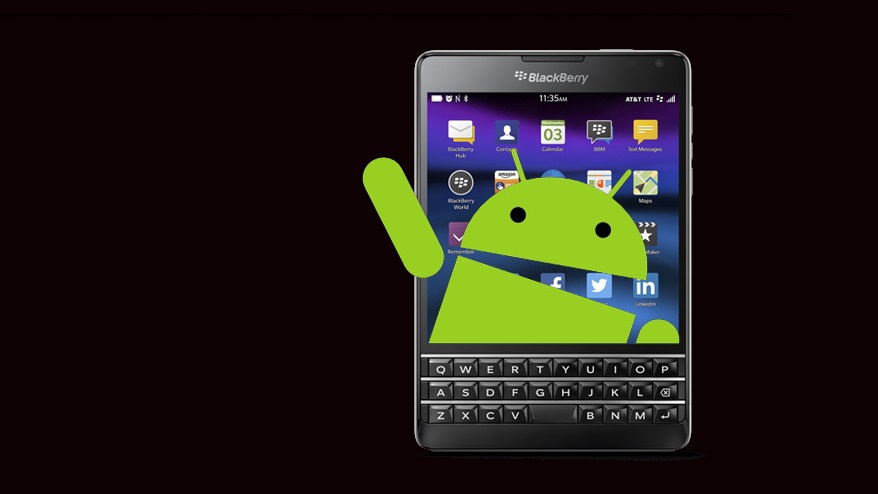Assessing Blackberry’s rumored move to Android, it’s impossible to escape the obvious conclusion: in doing so, Blackberry is really signaling its intent to halt its money-losing device hardware business in order to focus on software and services. And there are some interesting parallels to be seen between this strategy and what Microsoft is doing.
Microsoft, of course, isn’t quite ready to abandon smart phone hardware. After all, it purchased Nokia’s hardware and services businesses a bit over a year ago for a stunning $7.2 billion. But like Blackberry, Microsoft has hitched its mobile fortunes to software and services, and for the most part, those offerings will be used more on platforms they don’t own or control. That is, Microsoft would prefer for its mobile platforms to be successful, but it is ready in the event that it doesn’t happen.
Blackberry’s apparent embrace of Android could accomplish the same.
Like Microsoft, Blackberry tried starting over with a new mobile platform when its initial platform stumbled in the face of iPhone and then Android. In 2010, the firm purchased QNX, a widely-respected maker of a real-time OS for embedded and mobile devices. Its first QNX-based system appeared in the Blackberry PlayBook, a full-sized tablet that flopped. The firm then adapted the system, now called Blackberry 10, for phones, but the resulting handsets have also flopped, forcing Blackberry to issue a string of new handsets based on the older BlackBerry OS.
Blackberry says it remains “committed” to Blackberry 10, but of course it does. Microsoft is likewise “committed” to Windows Phone even though that platform is also sputtering in the market. But behind the scenes, both companies have been steadily embracing Android for some time.
For Blackberry, this means an Android app compatibility feature in Blackberry 10 that doesn’t seem to have won it many converts. And in 2014, the firm began bundling Amazon’s AppStore for Android on its devices, so it’s reasonable to think that this app store could be used on Blackberry-branded Android devices as well. But Blackberry could also bring unique features to Android, such as its own BB10-based software interfaces and, possibly, models with a hardware keyboard.
More likely, however, is that Blackberry would license this system to other Android device makers and further distance itself from the costly business of manufacturing devices. Today’s modern Blackberry devices are already made for it by other firms, and in licensing a secure, business-friendly layer on top of the world’s most popular mobile OS, Blackberry could open up a new business model for itself.
Blackberry, like Microsoft, could also have a presence in device management, and a limited presence in apps thanks to the success of Blackberry Messenger. For its part, Microsoft is better positioned in that apps market, with more and more mobile apps appearing almost every week in recent months.
But in some ways, the most interesting thing about Blackberry’s alleged plans is that the firm hasn’t denied the rumors, which lends credence to the possibility of it really happening.
“We don’t comment on rumors and speculation, but we remain committed to the BlackBerry 10 operating system, which provides security and productivity benefits that are unmatched,” a Blackberry statement notes.
I’ll just note that despite this commitment, Blackberry also sells classic Blackberry handsets. And again, that a move to Android could help the firm ease away from hardware all together.




